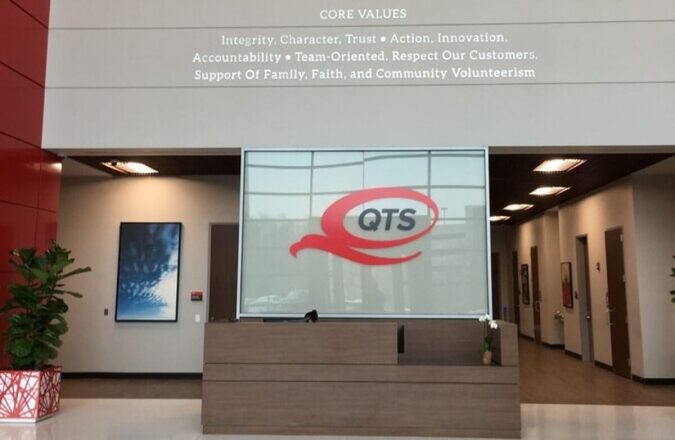At just 18 years old, Zach Yadagari finds himself living a life that many would consider a dream. Co-founder and CEO of Cali, an innovative app that simplifies calorie tracking through AI technology, Zach’s journey emphasizes that self-limiting beliefs often tied to age can be overcome with determination and vision. With his application reportedly generating around $1.4 million per month after app store cuts, it’s not just his entrepreneurial triumphs that garner attention; it’s the lifestyle choices that have come with it, including a recent purchase of a Lamborghini. However, his approach to spending money reflects a thoughtful outlook that goes beyond mere material indulgence.
“To be 18 and have a Lamborghini honestly feels kind of awesome,” Zach shared, exemplifying a youthful exuberance tempered by introspection. He acknowledges the criticisms of buying such a luxury item at a young age but counters that life is too short to delay dreams. “I think it’s only going to have diminishing returns as I get older,” he explains, suggesting a level of understanding about the fleeting nature of youth and the importance of living in the moment.
Having identified as a non-materialistic person who doesn’t crave many things, Zach plans to save most of what he earns after enjoying the fruits of his success. This philosophical approach is inspiring, especially considering that his entrepreneurial journey started with a personal goal that wasn’t solely financial. Growing up skinny, Zach sought to gain muscle not just for health but to impress peers and find his place socially. This led him to the gym and subsequently to the challenges of maintaining a healthy lifestyle through traditional calorie-counting methods.
“A few years ago, I started working out. I didn’t see results, so I downloaded one of the most popular apps at the time,” he recalls, describing frustrations familiar to many trying to manage weight. The app in question proved unsustainable, burdening users with tedious food logging and weighing, which eventually led to Zach abandoning it after just three days. This personal experience inspired him to find a better solution—an AI-driven app where users could take a simple photograph of their food, instantly receiving calorie and macronutrient information.
With the rapid advancements in artificial intelligence and technologies like ChatGPT, Zach teamed up with co-founders to develop a product that offered simplicity without the traditional hassle associated with dieting apps. “The response immediately was very positive,” he noted, recognizing a gap that they could fill in the market. This initial success prompted an all-in commitment, as they relocated to San Francisco for a month to push the app further, encapsulating the essence of dedication and rigorous work that characterize Silicon Valley’s startup culture.
“Living in a hacker house, basically sleeping in the office… that month was the real turning point,” Zach shared, articulating how such immersive experiences are pivotal for young entrepreneurs. They spent significant time refining their app and building a dedicated team, realizing early on that their unorthodox approach could carve out a unique space in an overcrowded market.
Despite juggling the demands of high school, he prioritized his startup like never before. Zach dedicated around 40 hours a week to Cali while studying, which included making the decision to forgo AP tests to focus wholly on his business. “I sat for 12 hours total doing nothing. I don’t care. There are more important things to discuss,” he said candidly, illuminating a common struggle faced by young innovators caught between academia and entrepreneurship.
The distinction that sets Cali apart is its effective use of influencer marketing, which translates into a significant portion of their operational expenses. “There are many competitors,” he said, “but those other apps suck. We are the answer to the frustrations of users.” Zach and his team are also keenly aware of the limitations of their app and constantly work to educate users on how to use the technology effectively, a critical element in maintaining credibility and user engagement.
Many may wonder how Zach got to where he is today. His coding journey began at the tender age of seven, fueled by his passion for video games. “I was obsessed with Minecraft and Roblox,” he recalls. Zach’s early motivations to learn coding were tied intricately to his desire for autonomy; wanting to bypass the traditional education system’s pressures and carve out a unique path in entrepreneurship. This quest led him to create an unblocked gaming website during his freshman year, targeting students who wanted more freedom at school. His journey reflects a desire to innovate from an early age, often working against the grain of educational orthodoxy.
Cali’s development was resourceful and efficient, with co-founders Zach and Henry taking a hands-on role during the initial build. However, the challenges of scaling emerged quickly; they often found themselves in a race against Apple’s payout calendar, which initially left them financially stretched. “For months we were putting money in and weren’t seeing a proportional amount of money out,” Zach explained, underscoring the realities of startup cash flow management. Ultimately, they persevered and transformed Cali into a profitable venture, but not without facing steep learning curves along the way.
As he prepares to take on college life while continuing to grow Cali, Zach strikes a balance that is remarkably mature for his age. He plans to create a supportive and collaborative living environment with other app founders while also embracing the social aspects of campus life. “It’s going to be probably fun but also pretty difficult,” he noted, openly acknowledging the potential challenges of his dual existence juggling academic responsibilities and entrepreneurial ambitions.
For Zach, the aspirations for Cali stretch beyond mere financial success. He envisions the app becoming the largest calorie tracking tool available, aimed at helping others maintain a healthy lifestyle with minimal effort. Looking further into the future, he aims to establish a generational company that will not only build wealth but also impact lives positively. “Age doesn’t really matter much. You’re either good or not good at what you do,” he states, reminding us that ultimately, passion, skill, and market relevance will define success—far more than age or experience.



